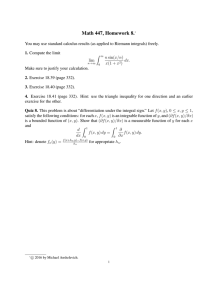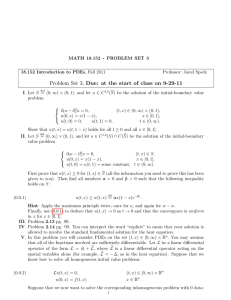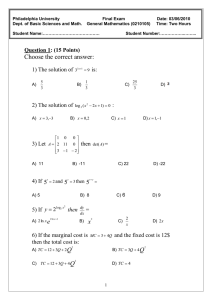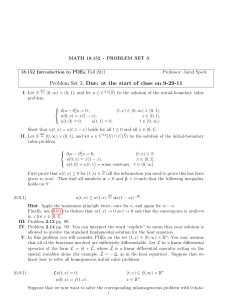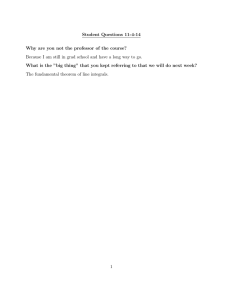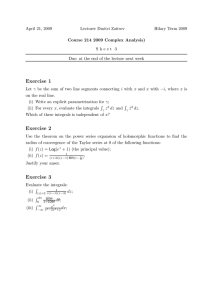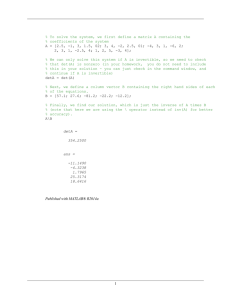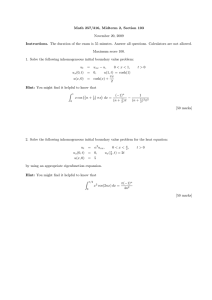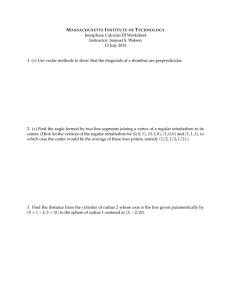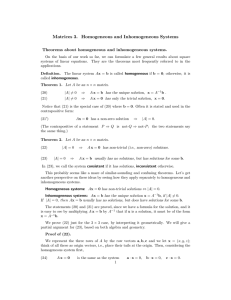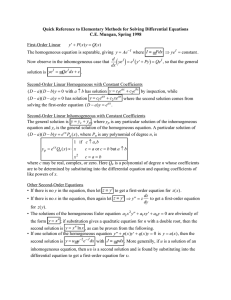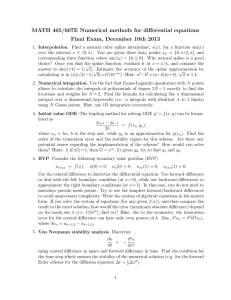MA 216 Assignment 4 Due 5 December 2007
advertisement
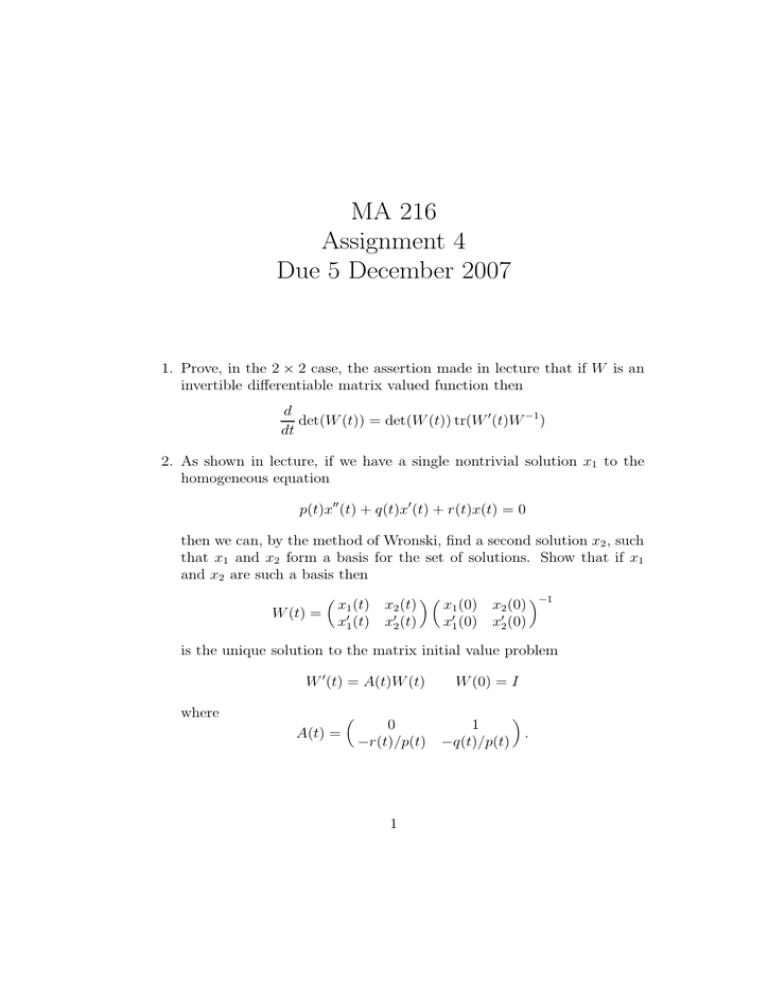
MA 216 Assignment 4 Due 5 December 2007 1. Prove, in the 2 × 2 case, the assertion made in lecture that if W is an invertible differentiable matrix valued function then d det(W (t)) = det(W (t)) tr(W ′ (t)W −1 ) dt 2. As shown in lecture, if we have a single nontrivial solution x1 to the homogeneous equation p(t)x′′ (t) + q(t)x′ (t) + r(t)x(t) = 0 then we can, by the method of Wronski, find a second solution x2 , such that x1 and x2 form a basis for the set of solutions. Show that if x1 and x2 are such a basis then W (t) = x1 (t) x2 (t) x′1 (t) x′2 (t) x1 (0) x2 (0) x′1 (0) x′2 (0) −1 is the unique solution to the matrix initial value problem W ′ (t) = A(t)W (t) where A(t) = W (0) = I 0 1 . −r(t)/p(t) −q(t)/p(t) 1 3. Assuming the result of the previous exercise, find a solution to the inhomogeneous equation p(t)x′′ (t) + q(t)x′ (t) + r(t)x(t) = ϕ(t) in terms of a pair x1 , x2 of solutions to the homogeneous equation p(t)x′′ (t) + q(t)x′ (t) + r(t)x(t) = 0. Hint: The equivalent first order system is x′ (t) y ′ (t) x(t) = A(t) y(t) + 0 . ϕ(t)/p(t) Use the general formula ~x(t) = W (t)~x(0) + Z t W (t)W (s)−1f~(s) ds, 0 for the solution to a first order inhomogeneous system ~x′ (t) = A(t)~x(t) + f~(t). 4. The Chebyshev equation of order n is (1 − t2 )x′′ (t) − tx′ (t) + n2 x(t) = 0. Special solutions are x1 (t) = 1 when n = 0, x1 (t) = t when n = 1 and x1 (t) = 2t2 − 1 when n = 2. In each of these three cases, find the general solution. √ R Hint: You will need to evaluate integrals of the form R(t, 1 − t2 ) dt, where R is a rational function of two variables. Such integrals can always be evaluated in terms of elementary functions by means of the rationalising substution t = 2u/(1 + u2 ) and partial fractions. 2
